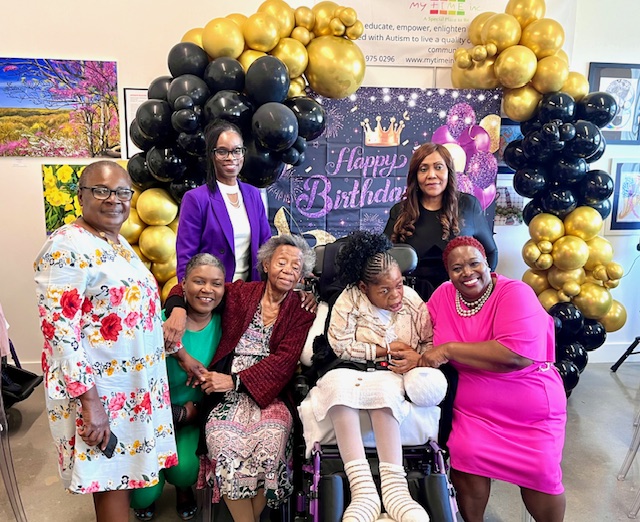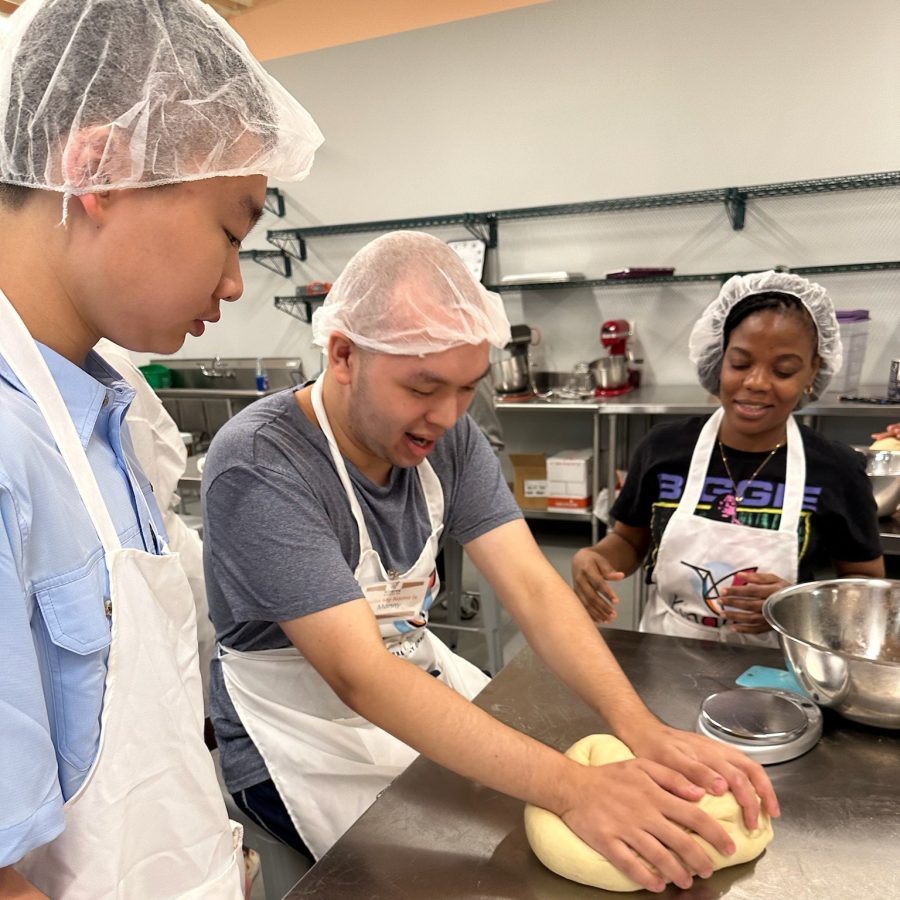Raising kids in New York City presents challenging financial and organizational burdens, and for parents of children with disabilities, these can be intensified by everything from navigating specialized services and mounting expenses to managing complex health care needs. When families also face barriers related to language, immigration status, and financial and housing instability, the challenges multiply.
The Trust has a long history of supporting New York’s families and expanding opportunities for people with disabilities.
Over 40 years ago, we provided INCLUDEnyc—now a preeminent resource for families of children with disabilities—one of its first grants, and we’ve continued to fund programs working to make sure all children in our region can thrive.
Recently, Senior Program Officer Rachel Pardoe developed a plan to reach additional families. Pardoe, who handles The Trust’s grantmaking for people with disabilities, had noticed that she received few proposals from nonprofits with the cultural and linguistic competencies needed to serve New York City’s immigrant communities.
“Many of the city’s newest residents live in the outer boroughs, don’t speak English as a first language, and are hesitant to seek help from unfamiliar providers. A cultural stigma around disability can also add to these barriers,” Pardoe said.
To address this need, Pardoe began community outreach and learned about a variety of grassroots nonprofits in Brooklyn and Queens that provide critical support to these communities. She also learned that many of the groups were led by community members and parents of children with disabilities, leaders who speak the language—literally and figuratively—and understand the cultural intricacies.
Pardoe saw an opportunity to reach more families and support the efforts of these nonprofits, many of which had never applied for a private foundation grant and relied primarily on donations and volunteers. She issued a request for proposals, and in February 2024, The Trust made seven three-year grants that are helping eight grassroots community organizations support families of children with disabilities.
Empowering parents to advocate for their children
My Time Inc., one of these recent grantees, focuses on supporting parents. Lucina Clarke is a Caribbean immigrant who, while working in special education, witnessed the frustrations of parents who lacked resources and support. She started My Time Inc. with her husband, Wayne Clarke, to create a safe haven for parents—one where they could access resources and emotional wellness programs, build community, and advocate more powerfully for their children.

“In our classes, we teach parents to navigate the system, understand the acronyms, and understand what services and resources you can request for your child. We make sure that as they learn, they are partnering with their peers to have that support system,” said Clarke. “Our parents don’t want sympathy; they want to be empowered and find a community that empathizes with their experiences.”
Life skills for young people with disabilities
Trust grantee Kindred Bakery BK in Flatbush, Brooklyn, is a nonprofit community bakery and training program founded in 2022 by the parents of a child with autism. While searching for opportunities to prepare their son for adulthood, they found a dearth of programs for low-income young people, especially those with disabilities, to build social, occupational, and life skills.
The nonprofit offers classes to help low-income young people and those with learning disabilities develop tools and skills to use in their home kitchens, and potentially beyond. The Trust provided Kindred Bakery’s first grant, allowing them to reach a broader group of participants.
“Inclusivity is a moral and economic imperative—people should not be excluded from the economy or the workforce due to their disability,” said Nigel Thompson, the Bakery’s cofounder. “Our program offers an arena for personal growth, as well as for the development of academic, professional, and life-building skills.”
Kindred Bakery creates a safe, inclusive space for people from diverse backgrounds to learn about making healthier baked goods, share food, and build community.
